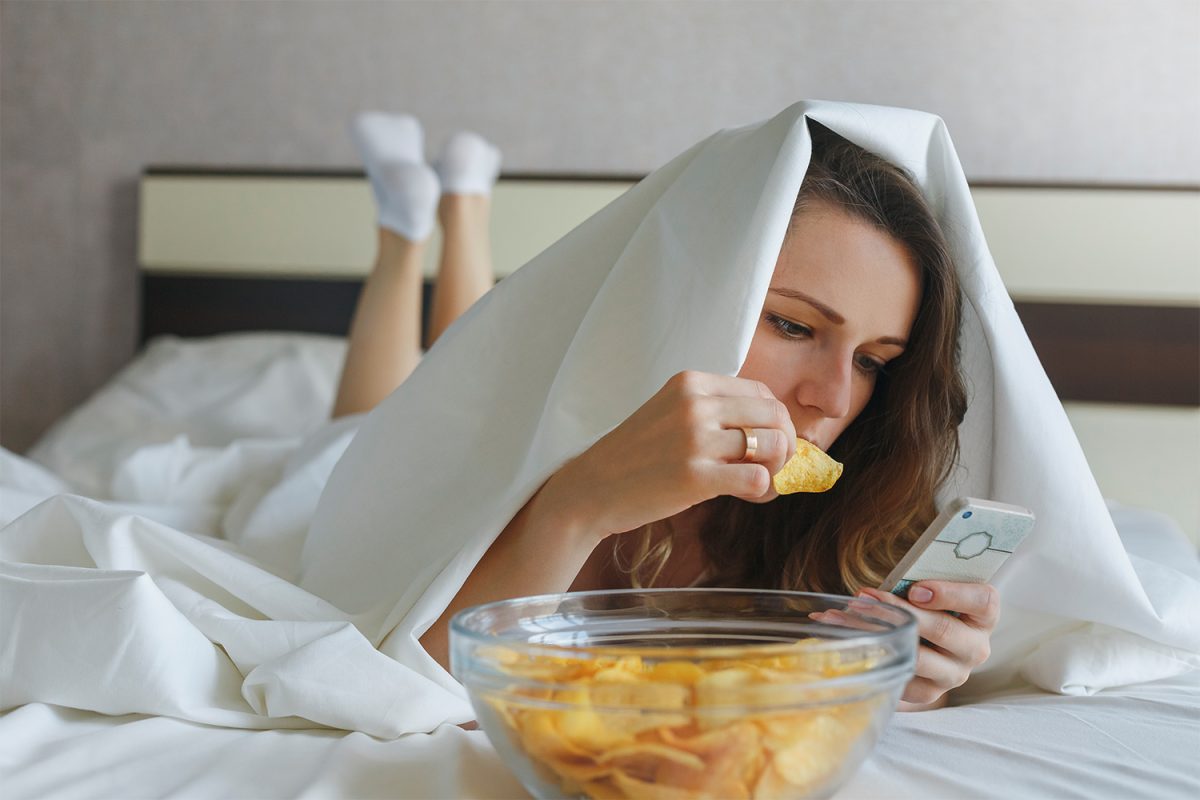Lying in bed surrounded by pillows and scrolling mindlessly on social media — a typical “bed rot” may sound like a harmless way to unwind, but the negatives outweigh the benefits.
Bed rotting is another form of procrastination. It refers to spending excessive time in bed, often on phones or watching television. The term gained popularity on TikTok, where users romanticize spending countless hours holed up in their rooms with ambient lighting and snacks. Filming time lapses of napping and relaxing in bed has become a norm on the platform.
This portrayal resonates with the desire for comfort and relaxation, especially during stressful periods. College students, in particular, are prone to burnout. Forty percent of college students reported being so stressed they found it hard to function. So, with the demands of extracurricular activities, social lives, and most importantly, academics, it’s easy to seek comfort in one’s room.
With midterms concluding at the University of Iowa, many students are looking forward to any break they can get. For some, that break means retreating to their beds for a few precious hours.
Second-year pre-med student Riley Asselin has a lot on her plate. Between studying for organic chemistry and biology midterms and balancing a research position, her academic life is truly demanding.
“After my classes are over, I love to stay in bed and decompress. Either I watch my show, scroll on TikTok, or read a book. I usually stay there until my roommate comes back and we need to eat, but I don’t really find the urge to get up and do anything else,” she said.
While the occasional rest is important, this form of relaxation may not be as restorative as it seems. Prolonged bed rotting has been linked to declines in mental health, including social isolation, depression, and lack of motivation.
“I remember I was so tired after my psychology midterm that I laid in bed for the rest of the day,” first-year student Madeline Anklam said. “The only other person I saw that day was my roommate, but even then, I didn’t have the motivation to get up and do the rest of my work.”
The brain thrives on stimulation and engagement, but too much passive activity can create a cycle of low mood and seclusion. If done to an extreme, social isolation can lead to a higher risk of depression and other mental illnesses.
When I was in high school, I brought my studying into my bed. For hours, I’d do my homework in the comfort of my blankets, but I’d end up getting less than six hours of sleep each night.
When I got to college, I changed my habits and started to study at my desk, which helped me get more than eight hours of sleep every night. A bed should be a sanctuary — a place to relax after a long, productive day. Bringing stress into this sanctuary affects not only your mood but also your sleep.
The same goes for bed rotting; “rotting” in bed diminishes its appeal when it’s actually time to sleep.
Balancing rest and activity is essential. Students can refresh their downtime with simple adjustments, like setting a timer to limit screen time or creating a cozy reading nook away from their bed. Taking your work to places like Java House or Prairie Lights might boost productivity and keep you away from bed rotting. If you want to stay in your dorm to relax, take a little time to create a space for yourself, whether it be investing in a futon, chair, or a comfy rug to sit on.
Another effective way to counter bed rotting is to connect with study groups, attend campus events, or hang out with friends.
Soon, finals will take over our lives. But we shouldn’t let the stress and prolonged study sessions overtake our downtime. Get enough sleep and set a routine. Procrastinating in bed won’t solve your problems; it’ll likely just create more.



